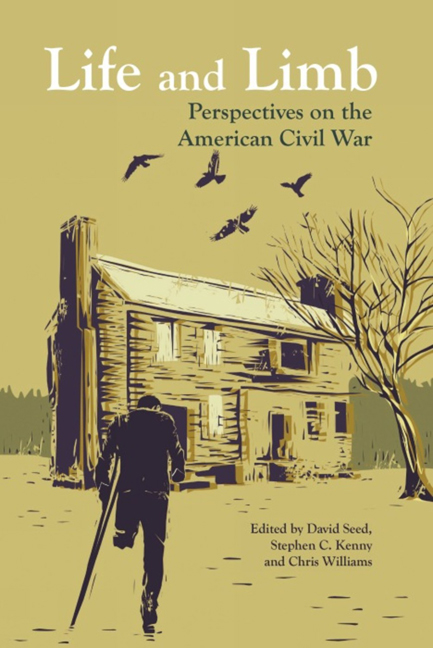Book contents
- Frontmatter
- Contents
- List of Illustrations
- Acknowledgements
- Introduction: Civil War Voices and Views
- MEDICAL AND SURGICAL MEMOIRS
- ACCOUNTS OF NURSING
- MEDICAL FACILITIES AND PATHOLOGY
- PHOTOGRAPHY
- AMPUTATIONS AND PROSTHETIC LIMBS
- IN THE FIELD OF BATTLE
- POST-WAR NARRATIVES
- Contributors
- Select Bibliography
- Index
- Plates
Introduction: Civil War Voices and Views
- Frontmatter
- Contents
- List of Illustrations
- Acknowledgements
- Introduction: Civil War Voices and Views
- MEDICAL AND SURGICAL MEMOIRS
- ACCOUNTS OF NURSING
- MEDICAL FACILITIES AND PATHOLOGY
- PHOTOGRAPHY
- AMPUTATIONS AND PROSTHETIC LIMBS
- IN THE FIELD OF BATTLE
- POST-WAR NARRATIVES
- Contributors
- Select Bibliography
- Index
- Plates
Summary
Despite Walt Whitman's doubts that the truth would ever be told about the American Civil War, the historian Louis P. Masur has taken the poet's assertion that ‘the real war will never get in the books’ as the title for his own anthology, which confirms his assertion that it was a ‘written war.’ It was a conflict which produced a wealth of accounts ranging from diaries to official reports. While the emphasis in this body of work falls on the wounded and on medical practice, the drama within this writing regularly falls on the interplay between voices, between patient and nurse, observer and participant.
As this collection demonstrates, the boundary between private and public texts blurred repeatedly as participants sought to preserve their records of events. Taking one example from the many, the Southern novelist John Beauchamp Jones served as a clerk in Richmond and published his diary of the war years in 1866. When describing the return of the wounded after successfully repelling an attack, he noted not only the supplies they salvaged: ‘There were boxes of lemons, oranges, brandies and wines, and all the luxuries of distant lands which enter the unrestricted ports of the United States. These things were narrated by the pale and bleeding soldiers, who smiled in triumph at their achievement.’ Apart from their need of care and attention, the wounded were a source of information which Jones transmitted through his diary. More famously but in a similar spirit, while serving in the hospitals of Washington, DC, Walt Whitman cast himself in the role of mediator between casualties and public, registering the different stories of the soldiers he encountered. In the last of his ‘memoranda’ on the war when peace came, he expressed scepticism about whether the ‘black infernal background of countless minor scenes and interiors’ would ever be conveyed to future generations, making a point which is demonstrated on virtually every page of this anthology. Civil War writing frequently presented a series of small episodes, pictures, anecdotes or case histories, a series of glimpses of a new complex and appalling reality. Whitman's choice of the memorandum or short sketch was strategic in pursuing the vivid particularity of particular cases, for example that of a young soldier from Wisconsin who was fatally wounded in battle.
- Type
- Chapter
- Information
- Life and LimbPerspectives on the American Civil War, pp. 1 - 8Publisher: Liverpool University PressPrint publication year: 2015



